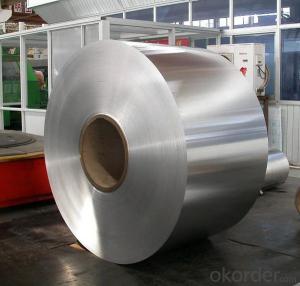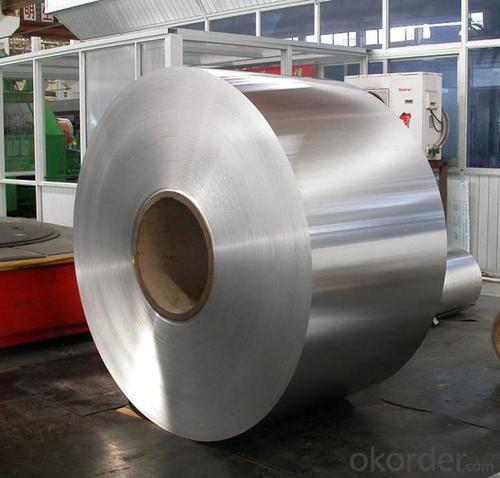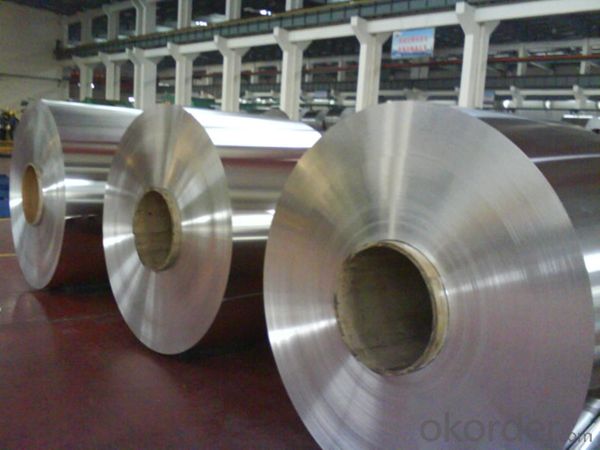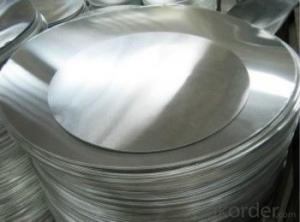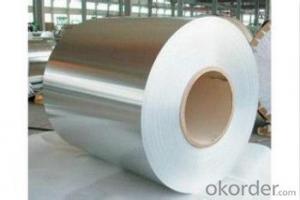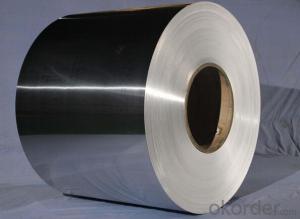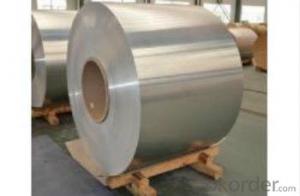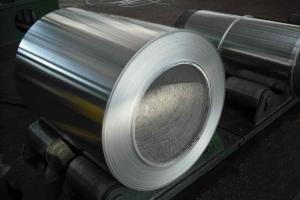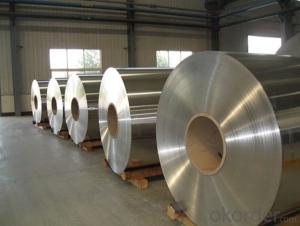3/8 Aluminum Coil AA1060 H12 Mill Finish China Supply
- Loading Port:
- Shanghai
- Payment Terms:
- TT OR LC
- Min Order Qty:
- 5 m.t.
- Supply Capability:
- 10000 m.t./month
OKorder Service Pledge
OKorder Financial Service
You Might Also Like
Specification
1. Specification of AA1060 H12 Mill Finish Aluminum Coil China Supply
Material | Alloy Aluminum 6063,6061,6005 or customer nominated |
Temper | T3, T4, T5, T6 |
Surface | Anodize, electrophoresis, powder coating, PVDF coating, wood grain painting, matted, etc. |
Colour | Any colour based on Standard Germany RAL Mark |
Length | Coating 6.5 meters, Anodizing 6.5 meters, Mill finish 5 meters |
Press Machine | 500-4000 tons all together 64 press lines. |
Fabrication | 1. Windows and doors; 2. Drilling; 3. Bending; 4. Cutting; 5. etc. |
Certificate | ISO 9001 |
Moulding | 1. Using our moulds, no fee; |
2. Using customer drawing, opening mould, usually about 10~50 tons then the moulding can be refunded. | |
3. Mould cost is negotiable base on the order quantity | |
Capability | Annual output 100,000 tons |
2. Application of AA1060 H12 Mill Finish Aluminum Coil China Supply
(1).Interior: wall cladding, ceilings, bathrooms, kitchens and balconies, shutters, doors...
(2).Exterior: wall cladding, facades, roofing, canopies, tunnels,column covers , renovations...
(3).Advertisement: display platforms, signboards, fascia, shop fronts...
3. Feature of AA1060 H12 Mill Finish Aluminum Coil China Supply
*Such coil is specially designed to replace aluminum ingot, due to the high export tax of aluminum ingot, the coil has better price than ingot.
*This type of coil can fit customer's remelting furnace just like ingot, no need to make any change to the production line that was previously used for ingot. The standard coil size and weight is very suitable for the feed gate of furnace.
*This type of coil causes less material wastage than ingot when remelted.
*Our coil is made directly from ore, no need to go though the ingot making process, quality is much better than other suppliers who use ingot scrap to make coil.
Be free from Oil Stain, Dent, Inclusion, Scratches, Stain, Oxide Dicoloration, Breaks, Corrosion, Roll Marks, Dirt Streaks and other defect which will interfere with use
4. Certificate:
SGS and ROHS(if client request, paid by client), MTC(plant provided), Certificate of Origin(FORM A, FORM E, CO), Bureau Veritas and SGS (if client request, paid by client), CIQS certificate
5. Image of AA1060 H12 Mill Finish Aluminum Coil China Supply
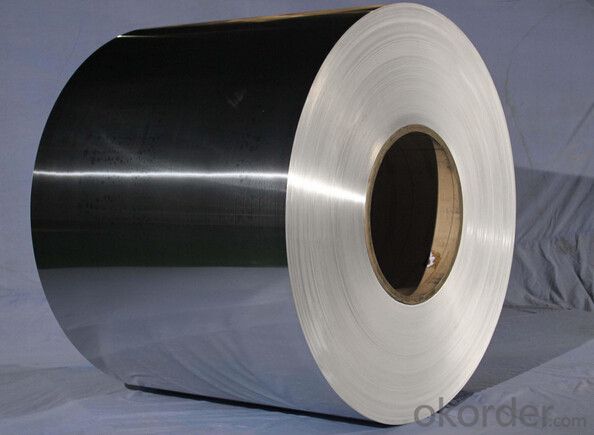
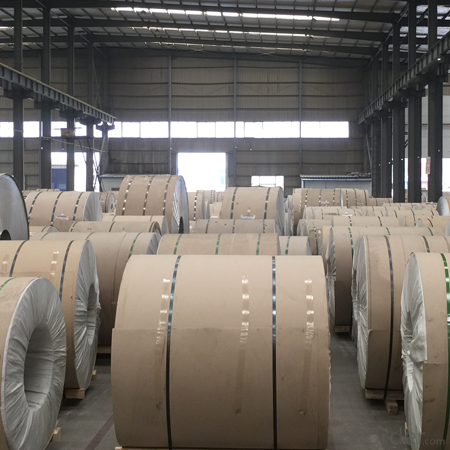
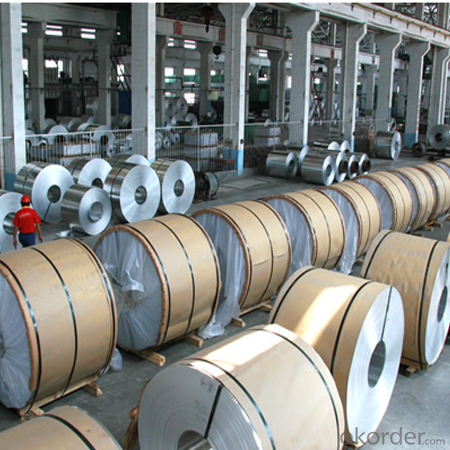
6. Package and shipping of AA1060 H12 Mill Finish Aluminum Coil China Supply
eye to wall
eye to the wall
with wood pallet (wooded case also available)
7. FAQ
1) What is the delivery time?
Dpends on actual order, around 20 to 35 days
2)What is the QC system:
We have QC staff of 20 persons and advanced equipment, each production is with MTC traced from Aluminum ingot lot.
3) What market do you mainly sell to?
Australia, America, Asia, Middle East, Western Europe, Africa etc
- Q: What is the electrical conductivity of aluminum coils?
- The electrical conductivity of aluminum coils is very high, making aluminum an excellent choice for conducting electricity efficiently.
- Q: How are aluminum coils protected against bending and warping during storage?
- Various measures and precautions are taken to protect aluminum coils from bending and warping during storage. Firstly, the coils are typically stored horizontally to evenly distribute the weight and reduce stress on the coil, thus preventing any bending or warping that could occur if stored vertically. Additionally, protective materials such as plastic or paper are often used to wrap the coils, creating a barrier against external forces that could cause damage. These wrappings act as a cushion, preventing direct contact with hard surfaces that could result in bending or warping. Furthermore, it is standard practice to carefully and securely stack the coils, ensuring they are not overloaded or subjected to excessive pressure. This helps maintain the coils' structural integrity and prevents deformation during storage. Temperature control is also crucial in protecting aluminum coils. Extreme temperature fluctuations can cause the metal to expand or contract, potentially leading to warping. Therefore, it is important to maintain a stable storage environment to minimize any thermal stress on the coils. In conclusion, proper handling, protective wrappings, secure stacking, and temperature control all play vital roles in preventing bending and warping of aluminum coils during storage. These measures ensure the coils remain in optimal condition and are readily available for use when needed.
- Q: How are aluminum coils coated for color matching and aesthetic purposes?
- Aluminum coils are commonly coated for color matching and aesthetic purposes through a process known as coil coating. Coil coating is a continuous and highly automated process that involves applying a layer of paint or coating onto the aluminum coil surface. The first step in the coil coating process is cleaning the aluminum coil thoroughly to remove any dirt, grease, or oxidation. This is typically done using a combination of chemical cleaning agents and mechanical scrubbing methods to ensure a clean and smooth surface. After the cleaning process, a primer is applied to the aluminum coil. The primer acts as a bonding agent, improving the adhesion of the subsequent layers of paint or coating. The primer also helps to prevent corrosion on the aluminum surface. Once the primer is applied, the aluminum coil passes through a series of rollers, where the desired color coating is applied. This color coating can be achieved through various methods, such as coil coating, spray coating, or powder coating. Coil coating, being the most common method, involves the application of a liquid paint or coating onto the metal coil surface. The coating is then cured or dried using heat, ensuring proper adhesion and durability. To achieve color matching and aesthetic purposes, the paint or coating used is often customized to specific color palettes or customer requirements. This customization can be achieved by using a wide range of pigments and additives that alter the color, texture, and gloss level of the coating. Additionally, aluminum coils can also be coated with specialized coatings to enhance their aesthetic properties. For instance, there are coatings available that give the appearance of natural wood or stone, providing a more visually appealing finish. Overall, the process of coating aluminum coils for color matching and aesthetic purposes involves thorough cleaning, priming, and the application of customized paint or coatings. This ensures that the aluminum coils meet the desired aesthetics while also providing durability and protection against corrosion.
- Q: I have a muffin pan made of aluminum foil and I do not know if i can put it in the oven to cook some muffins. Many sights say it will melt but they say that about putting a sheet of foil at the bottom of the oven for a long time. I just want it to be in their for half an hour to make muffins.
- This Site Might Help You. RE: Can you put aluminum foil in the oven? I have a muffin pan made of aluminum foil and I do not know if i can put it in the oven to cook some muffins. Many sights say it will melt but they say that about putting a sheet of foil at the bottom of the oven for a long time. I just want it to be in their for half an hour to make muffins.
- Q: Is it advisable to use a hammer to open a stuck aluminum coil?
- <p>Using a hammer to break open an aluminum coil that is stuck closed is not recommended. Aluminum is a soft metal and can be easily damaged by blunt force. Instead, try using pliers or a screwdriver to gently pry open the coil. If the coil is rusted or stuck due to other reasons, applying a penetrating oil or lubricant might help loosen it without causing damage. Always prioritize safety and the preservation of the material when attempting to open or unstick objects.</p>
- Q: What are the different coil transportation options for aluminum coils?
- There are several different coil transportation options available for aluminum coils. 1. Flatbed Trucks: Flatbed trucks are commonly used for transporting aluminum coils. These trucks have an open top and are equipped with a flat, open trailer bed. The coils are securely strapped or banded onto the bed to prevent any movement during transportation. 2. Coil Racks: Coil racks are specialized transportation equipment designed specifically for carrying aluminum coils. These racks are usually made of steel and are placed inside a truck or trailer. The coils are stacked on the racks, which have dividers to keep them in place and prevent any shifting or damage. 3. Coil Trailers: Coil trailers are trailers that are specifically designed for transporting aluminum coils. These trailers have a unique coil cradle system that securely holds the coils in place during transportation. The cradles are adjustable to accommodate different coil sizes and prevent any movement or damage. 4. Container Shipping: Aluminum coils can also be transported using shipping containers. The coils are loaded into the containers and secured using straps or bracing. This option is commonly used for international transportation, as containers can be easily loaded onto ships or trains. 5. Rail Transport: Rail transport is another option for transporting aluminum coils. Specialized rail cars, known as coil cars, are used for this purpose. These cars have cradles or racks built into them to securely hold the coils during transit. Rail transport is often used for long-distance transportation, as it is a cost-effective and efficient method. Overall, the choice of coil transportation option depends on factors such as distance, cost, and the specific requirements of the coils being transported.
- Q: What are the disadvantages of using aluminum coils?
- One of the disadvantages of using aluminum coils is their susceptibility to corrosion. Aluminum is a reactive metal and can easily oxidize when exposed to moisture and certain chemicals, leading to corrosion and degradation of the coils over time. Additionally, aluminum coils may be more expensive compared to other coil materials such as copper, which can impact the overall cost of HVAC systems or other applications that utilize coils.
- Q: Can aluminum coils be used in high-altitude environments?
- Indeed, the utilization of aluminum coils is feasible in high-altitude settings. Thanks to its lightweight and resistance to corrosion, aluminum is a fitting material for various purposes, including in high-altitude scenarios. Aluminum coils are often employed in air conditioning systems, heat exchangers, and refrigeration units, all of which can operate efficiently at high altitudes. The high strength-to-weight ratio of aluminum enables it to endure the harsh conditions encountered at high altitudes, encompassing low temperatures, strong winds, and low atmospheric pressure. Moreover, aluminum is non-magnetic, providing an advantage in specific high-altitude applications like aerospace and satellite technologies. Additionally, aluminum exhibits exceptional thermal conductivity, facilitating efficient heat transfer and rendering it perfect for deployment in cooling systems functioning in high-altitude environments. Its resistance to corrosion also ensures durability and the ability to withstand the impact of moisture, which can be prevalent in such settings. All in all, owing to their lightweight nature, resistance to corrosion, thermal conductivity, and strength, aluminum coils serve as a dependable and appropriate choice for utilization in high-altitude environments.
- Q: How do aluminum coils contribute to sustainable building practices?
- Aluminum coils contribute to sustainable building practices in several ways. Firstly, aluminum is a highly recyclable material, meaning that the production and use of aluminum coils have a minimal impact on the environment. Recycling aluminum requires only a fraction of the energy needed to produce new aluminum, reducing greenhouse gas emissions and conserving natural resources. Additionally, aluminum coils are lightweight and durable, making them an ideal choice for sustainable building practices. The lightweight nature of aluminum reduces the load on the building structure, leading to lower transportation costs and energy consumption during construction. Its durability ensures that aluminum coils have a long lifespan, reducing the need for frequent replacements and associated waste generation. Furthermore, aluminum is resistant to corrosion and requires minimal maintenance. This quality contributes to the longevity of buildings, reducing the need for repairs and replacements over time. This not only saves resources but also reduces the overall environmental impact of the building. Moreover, aluminum coils offer excellent thermal conductivity, which can contribute to energy efficiency in buildings. When used as part of insulation systems or in HVAC systems, aluminum coils help to regulate temperature and minimize energy consumption. This can result in reduced energy bills and a smaller carbon footprint for the building. Lastly, aluminum coils can be used in various applications, including roofing, cladding, and ventilation systems. Their versatility allows for creative and innovative design solutions, promoting sustainable building practices by incorporating energy-efficient features and promoting natural ventilation. In conclusion, aluminum coils contribute to sustainable building practices through their recyclability, lightweight and durable nature, resistance to corrosion, thermal conductivity, and versatility. By choosing aluminum coils for construction, we can minimize the environmental impact of buildings, conserve resources, and promote energy efficiency, ultimately leading to a more sustainable built environment.
- Q: Are aluminum coils resistant to moisture?
- Indeed, moisture poses no threat to aluminum coils. Being inherently resistant to corrosion, aluminum possesses an innate capability to combat the detrimental effects of moisture and other environmental elements. Consequently, it becomes an exceptional option for endeavors where moisture resistance holds paramount importance, including HVAC systems, refrigeration units, and outdoor equipment. Furthermore, aluminum can be fortified with an assortment of protective coatings and treatments to augment its moisture resistance and prolong its lifespan. In summary, the durability and moisture-withstanding capacity of aluminum coils render them a dependable choice across diverse industries.
Send your message to us
3/8 Aluminum Coil AA1060 H12 Mill Finish China Supply
- Loading Port:
- Shanghai
- Payment Terms:
- TT OR LC
- Min Order Qty:
- 5 m.t.
- Supply Capability:
- 10000 m.t./month
OKorder Service Pledge
OKorder Financial Service
Similar products
Hot products
Hot Searches
Related keywords
